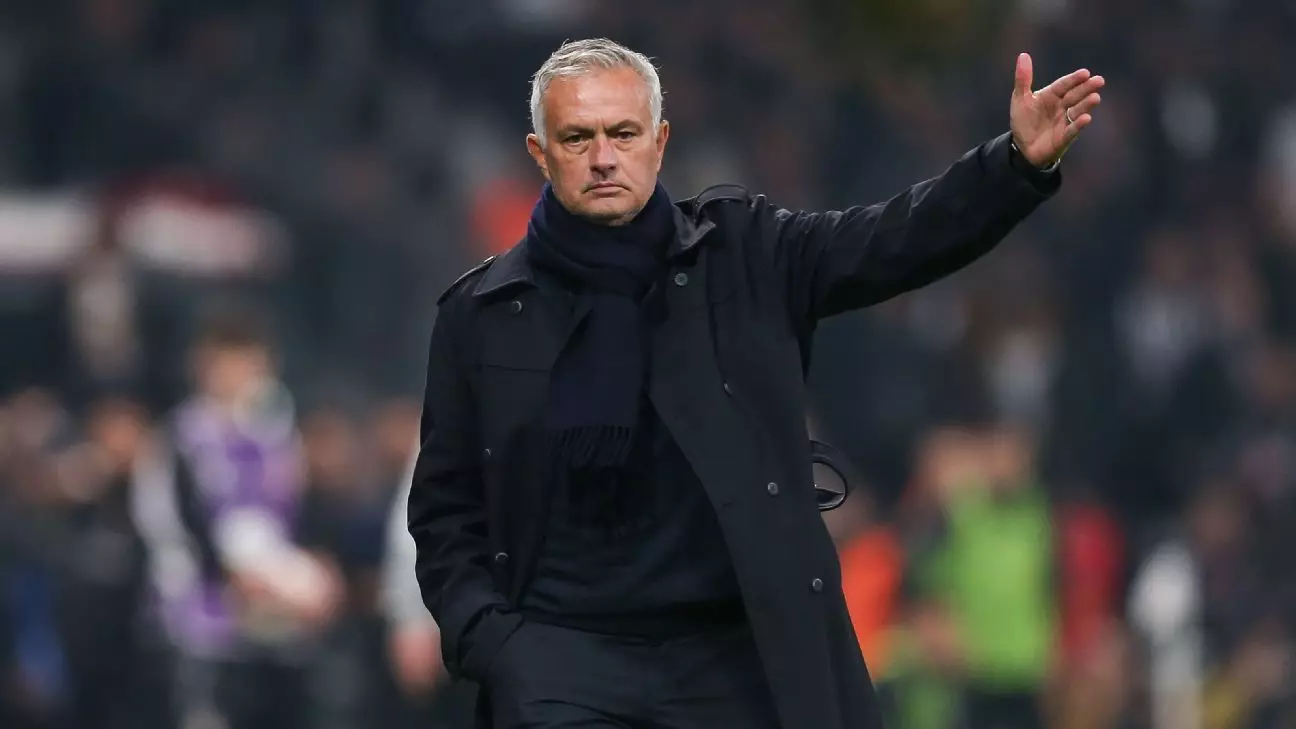The fierce rivalry between José Mourinho and Pep Guardiola has captivated football fans for over a decade. This contentious relationship began during Mourinho’s tenure at Real Madrid from 2010 to 2013, where both coaches often clashed over tactics, philosophies, and personal egos. The latest chapter in their saga emerged recently, with Mourinho addressing comments made by Guardiola regarding Manchester City’s title achievements amidst ongoing discussions about the club’s financial conduct.
Mourinho’s latest remarks were made in defense of his own credibility and intentions, which reportedly sparked a renewed interest in the narrative of their rivalry. This ongoing tension is not just about individual accolades but reflects a deeper issue within football: the question of fairness and justice in a sport increasingly swayed by finances.
The trigger for the recent spat seems rooted in Guardiola’s celebration of his six Premier League titles by gesturing a raised hand at Liverpool supporters after their taunts. Mourinho, in turn, came forward to defend the integrity of his own achievements and the ethical implications of financial discrepancies within the game. He posited that while he respects Guardiola’s accomplishments, the difference should prioritize fairness rather than financial muscle.
In a world where enormous financial resources can dictate the outcomes of leagues, Mourinho’s focus on “fair play” resonates with many fans who believe that the sport should be more equitable. His assertions reflect a concern for the smaller clubs that are significantly burdened by strict financial regulations, which often lead to harsh consequences, while larger clubs may escape scrutiny due to their wealth and influence.
Mourinho emphasized that his comments did not stem from a desire to see Manchester City relegated; instead, he articulated a wish for “justice in football.” This stance highlights a critical narrative in current football discourse: the distinction between competitive rivalry and honest critique of the sport’s ethics. Mourinho claimed his stance was purely about wanting fairness, especially as it pertains to how financial fair play rules are applied. He cited his experiences with AS Roma, where he faced limitations based on budgetary restrictions while feeling larger clubs seemed to skirt the rules.
This perspective demands scrutiny not just of the individual actions of the coaches, but of the entire framework governing football. The juxtaposition of their differing views underscores the complexities involved in managing modern football operations where financial disparities are a prevalent factor.
Amidst the backdrop of Mourinho’s statements, Guardiola has recently declared that he does not foresee managing any other club after his time at Manchester City, where he has signed a contract extension until 2027. His comments hint at a shift in focus towards a national team role or perhaps stepping away entirely after dedicating much of his career to club management.
This declaration invites speculation about the nature of managerial legacies in the contemporary era. With Guardiola indicating a reluctance to pursue another club venture, the question arises about how several top-tier managers will navigate their transitions once they step down from their current roles. Will they walk away from the game entirely, or find alternative roles that allow them to contribute to football while mitigating the relentless pressures of club management?
The ongoing narrative between Mourinho and Guardiola highlights not only their storied rivalries but also raises essential questions about the ethical dimensions of football today. As both coaches continue to navigate the high-stakes world of professional football, their comments reflect broader challenges regarding fairness, accountability, and the spirit of competition.
Both camps are expected to continue their pursuit of excellence, albeit under the weight of complex ethical considerations that shape the landscape of modern football. Ultimately, the dialogue initiated by these two iconic figures serves as a reminder that in the pursuit of glory, justice should remain at the forefront of football’s evolution.


Leave a Reply